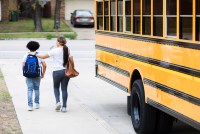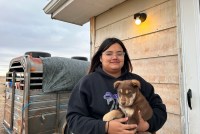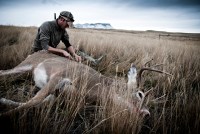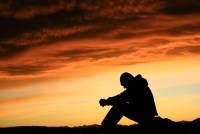Latest KFF Health News Stories
Native American Patients Are Sent to Collections for Debts the Government Owes
Federal law says Native Americans aren’t liable for medical bills the Indian Health Service promises to pay. Some are billed anyway as a result of backlogs or mistakes from the agency, financial middlemen, or health systems.
Tribal Leaders Ask Feds To Declare Syphilis Outbreak a Public Health Emergency
For Native American communities in the Great Plains, data paints a clear picture of the devastation caused by an ongoing syphilis outbreak. According to the South Dakota Department of Health, 649 cases of syphilis have been documented this year. Of those, 546 were diagnosed among Native Americans, who make up only 9 percent of the […]
Tribal Health Leaders Say Feds Haven’t Treated Syphilis Outbreak as a Public Health Emergency
The National Indian Health Board has urged the U.S. Department of Health and Human Services to declare a public health emergency as an alarming syphilis outbreak, which disproportionately affects Native Americans, continues. This is the latest plea for more resources from tribal leaders after previous requests went unanswered.
Trabajadores de salud comunitarios ayudan a mejorar la salud de habitantes de zonas rurales
Se ha comprobado que estas iniciativas mejoran la salud de las personas y el acceso a la atención preventiva, al tiempo que reducen las costosas visitas al hospital
Community Health Workers Spread Across the US, Even in Rural Areas
Community health workers are increasingly common in rural areas, where they help patients overcome barriers to accessing care and staying healthy.
Cash Shortages and Complex Rules Impede Native American Health-Care Access
Each year, the Indian Health Service rejects tens of thousands of requests to fund outside care that it doesn’t provide, forcing patients to go without treatment or pay big medical bills themselves. The IHS is supposed to provide free care to Native Americans, but it does so only at scattered clinics and hospitals the agency funds and then manages […]
Patients Suffer When Indian Health Service Doesn’t Pay for Outside Care
The Indian Health Service has a program that can pay for outside appointments when patients need care not offered at agency-funded sites. Critics say money shortages, complex rules, and administrative fumbles often block access, however.
Tribal Health Officials ‘Blinded’ by Lack of Data
A strong public health system can make a big difference for those who face stark health disparities. But epidemiologists serving Native American communities, which have some of the nation’s most profound health inequities, say they’re hobbled by state and federal agencies restricting their access to important data. American Indians and Alaska Natives face life expectancy […]
Native American Public Health Officials Are Stuck in Data Blind Spot
For decades, state and federal agencies have restricted or delayed tribes and tribal epidemiology centers from accessing public health data, a blackout that leaves health workers in Native American communities cobbling together information to guide their work, including tracking devastating disease outbreaks.
End of Internet Subsidy Leaves Millions Facing Telehealth Disconnect
When the clock struck midnight on May 31, more than 23 million low-income households were dropped from a federal internet subsidy program that for years had helped them get connected. The Affordable Connectivity Program was created in 2021, in the midst of the covid-19 pandemic, to help people plug into jobs, schools and health care by reducing their internet […]
Medicaid Unwinding Deals Blow to Tenuous System of Care for Native Americans
Although Native American and Alaska Native adults are enrolled in Medicaid at higher rates than their white counterparts, many tribal leaders feel they’ve been left in the dark as states roll through the tumultuous Medicaid unwinding that started last year.
Journalists Broach Topics From Treating Shooting Victims to Sunscreen Safety
KFF Health News and California Healthline staffers made the rounds on national and local media in the last couple of weeks to discuss topical stories. Here’s a collection of their appearances.
Tribal Nations Invest Opioid Settlement Funds in Traditional Healing To Treat Addiction
Hundreds of Native American tribes are getting money from settlements with companies that made or sold prescription painkillers. Some are investing it in sweat lodges, statistical models, and insurance-billing staffers.
En Colorado, reevalúan leyes formuladas para proteger a los menores
Hay esfuerzos en Colorado y otros estados para revertir las leyes que obligan a informar sobre sospechas de abuso o negligencia, argumentando que el resultado ha sido demasiados informes infundados, que perjudican desproporcionadamente a las familias que son pobres, negras, indígenas o tienen miembros con discapacidades.
Mandatory Reporting Laws Meant To Protect Children Get Another Look
The state is looking at ways to weed out false reporting of child abuse and neglect as the number of reports reaches a record high.
Neumáticos tóxicos están matando a los peces. ¿Qué pasa con los humanos?
Durante décadas, las preocupaciones sobre la contaminación automovilística se han centrado en lo que sale del tubo de escape. Ahora, investigadores y reguladores dicen que se necesita prestar más atención a las emisiones tóxicas de los neumáticos mientras los vehículos circulan por las carreteras.
Tire Toxicity Faces Fresh Scrutiny After Salmon Die-Offs
Tires emit huge volumes of particles and chemicals as they roll along the highway, and researchers are only beginning to understand the threat. One byproduct of tire use, 6PPD-q, is in regulators’ crosshairs after it was found to be killing fish.
Native Americans Have Shorter Life Spans. Better Health Care Isn’t the Only Answer.
Social services, such as parenting classes and economic development programs, can help increase the life spans of Native Americans, some health experts say. But insurers don’t always cover these services.
Possibility of Wildlife-to-Human Crossover Heightens Concern About Chronic Wasting Disease
A response is ramping up to a potential spillover of the neurological disease to humans from deer, elk, and other animals.
Native American Communities Have the Highest Suicide Rates, Yet Interventions Are Scarce
Native Americans die by suicide at a higher rate than any other racial or ethnic group, yet research into effective and culturally appropriate interventions is uncommon.




















